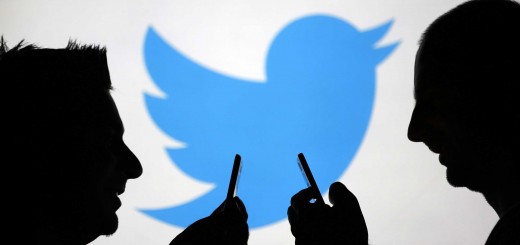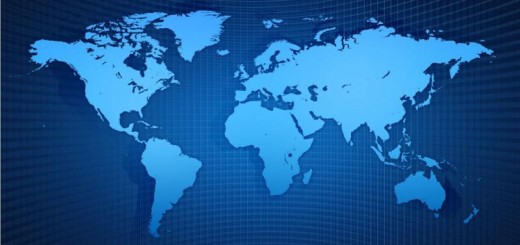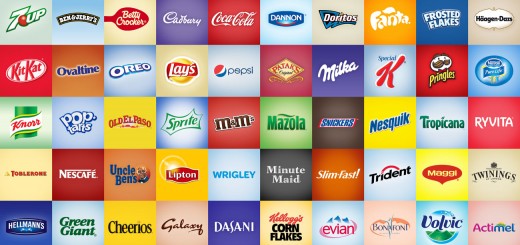What Advertisers Really Think About Transparency
The ad tech sector is arguably the hottest part of the marketing industry right now with the word ‘programmatic’ on almost every C-level marketer’s lips when talking about high-level strategy. Undoubtedly this is good news for the programmatic advertising industry, but it does bring with it an inherent need to improve transparency.
In this piece Bob Wootton, ISBA, director of media & advertising (below, right), explains to ExchangeWire readers his membership’s attitudes to transparency, viewability and brand safety, and also recounts how brands’ “anger” over instances of ad misplacement helped break earlier cross-industry deadlock over such issues, as well as growing inquiries over taking online media trading in-house.
- Your outfit has been quite vocal on raising awareness over programmatic advertising. Firstly, can you tell us what is the prevailing view among the ISBA membership about the above? For instance, what are
 the major concerns that are front of mind?
the major concerns that are front of mind?
BW: Advertisers are very excited by the targeting and accountability of return on investment which the digital channels promise, but are at the same time getting increasingly rattled by the scale of fees extracted and whether their ads are actually seen by the real people they are targeted to.
ISBA facilitated two events this year focusing on programmatic as our members are very concerned about lack of transparency in programmatic trading, viewability and brand safety.
We are also holding a round table end of October with members and Infectious Media on how advertisers view the programmatic opportunity, where they see barriers and how they are working to overcome them.
- You have been quoted in the press recently as saying that marketers (through bodies such as ISBA) have been calling for industry-wide moves to tackle the above, for 2.5 years, but it is only now that we are starting to see concerted moves to address it. Can you offer any insight as to why this has taken so long?
BW: Yes, it seems a long time when compared to the pace at which this market is evolving, but the simple fact is that it can take time to achieve consensus among multiple constituencies with differing business imperatives.
The cross-industry Digital Trading Standards Group (DTSG) was established 2.5 years ago, and recently put forward UK Good Practice Principles to JICWEBS aimed at setting out best practice for reducing the risk of unsafe advertising online. Within this initiative we have launched a brand safety seal against which 20 companies have now achieved independent accreditation.
So far so good, but we’re not complacent – transparency of the value chain remains an enormous challenge as so many people are making very good money covertly.
It was important to get all relevant parties involved and engaged, and that took time as their business interests diverge. It also took some time for companies that were willing and able to undertake the verification process to emerge. So far, 20 companies have been accredited with the seal including major players such as Google’s Doubleclick, Microsoft Advertising and Yahoo.
- Also,
 it took some time to get the Digital Trading Standards Group (DTSG) up and running in the aftermath of IASH winding up in 2011, with various parties registering their displeasure with prospective third-party auditing of their ‘ad trading process’. Again, can you offer any insights as to this change of mind? Was it the insistence of ISBA members on a more transparent process that prompted this change of heart?
it took some time to get the Digital Trading Standards Group (DTSG) up and running in the aftermath of IASH winding up in 2011, with various parties registering their displeasure with prospective third-party auditing of their ‘ad trading process’. Again, can you offer any insights as to this change of mind? Was it the insistence of ISBA members on a more transparent process that prompted this change of heart?
BW: IASH was initially set up to deal with brand safety issues arising from ad exchanges. The group was evolved to DTSG to cope with the
rapid changes in the online landscape and to embrace more and diverse players of all sizes.
Companies seeking accreditation can choose from three alternative providers as we felt that would be more acceptable (and more competitive) than a single industry source at this stage.
ISBA pushes for transparent solutions on behalf of its members. Rather than a specific member incident prompting this, there have in fact been quite a number of examples of reputable companies’ ads appearing in some pretty horrendous places over time, and it was those affected advertisers’ anger that convinced the online players that greater reassurance was necessary.
- Also, as listed in the first linked piece above, many of the ad tech firms were quicker to sign up to the recently proposed JICWEBS’ ‘kitemarks’ initiative, was this ‘lack of agility’ from the industry’s largest names a source of frustration to ISBA members, given that such players command the bulk of inventory? Plus how come Facebook (arguably Google’s biggest challenger in ad tec) is not involved?
BW: In June 2014, smaller companies in the space were accredited with the seal and it would be fair to say that there was frustration at the sloth of some major players to join an obviously well-intentioned initiative, but we are pleased that the major players have now followed suit.
- Sources from within ISBA mention that members are asking for greater levels of education around issues such as programmatic (i.e. everything from a basic ’101 lesson’, to more complex areas, such as attribution modelling). What moves is ISBA taking to address these apparent skills shortages?
 BW: We survey our members regularly on issues that they would like us to offer more training on. Everybody in the industry is talking about ‘programmatic’ (there are about a dozen industry conferences on it this autumn alone) so it’s only natural that advertisers feel they should know more too.
BW: We survey our members regularly on issues that they would like us to offer more training on. Everybody in the industry is talking about ‘programmatic’ (there are about a dozen industry conferences on it this autumn alone) so it’s only natural that advertisers feel they should know more too.
Media owners, agencies, trading desks, demand side platforms and tech providers all have roles to play in education, though too many find it easier to ‘scare the horses’ with ‘geek-speak’ rather than communicate in plain English. This will have to change.
ISBA plays its part through the publication of a ‘Guide to Real Time Advertising’ for our members with Infectious Media in June, and we also hold regular member training sessions covering topical digital issues.
Attribution is under ongoing discussion at ISBA’s Digital Action Group. We’ve had several presentations from outsiders on the subject. It’s clear that we are some way from answers as yet, but as soon as credible responses start emerging we’ll produce guidance for our members and will launch it at a dedicated event.
- Issues around click fraud, have also been discussed at length in the trade press this year, with Mercedes-Benz and Rubicon Project arguably the most high-profile ‘victims’. In your opinion have such stories held back brands’ spend in programmatic?
BW: It’s early days and difficult to sift real problems from the scaremongering from the press or from companies who have a vested interest in exaggerating the issue. Sadly, to my point above, this includes some content verification providers!
But to answer, inevitably, yes, it does put some advertisers off. It isn’t just a programmatic issue, it can put them off digital advertising as a whole. Suffice to say our members are pretty concerned about the issue. We’re here to get to the bottom of it, simplify things for them and offer useful, actionable guidance.
- Also, much has been made of the ‘opaque’ business and trading models of many agency trading desks, and the potential conflicts of interest it can lead to. Is this leading to more ISBA members enquire about building their own trading desks?
BW: Yes – not many as yet because it’s a serious choice with quite significant resource implications, but we expect more such enquiries over time.
There are three main options for brands when it comes to programmatic: a media agency/ATD; an ad tech specialist; and building their own trading desk.
We talk our members through the options and give them information in order for them to make their own decision. It would be inappropriate, perhaps even anti-competitive, for us overly to influence their choice.
Our imminent round table with Infectious Media will shed more light on advertisers’ views on agency trading desks. Similarly, in June we held an event where Moneysupermarket.com told us why and how they established their own trading desk.



